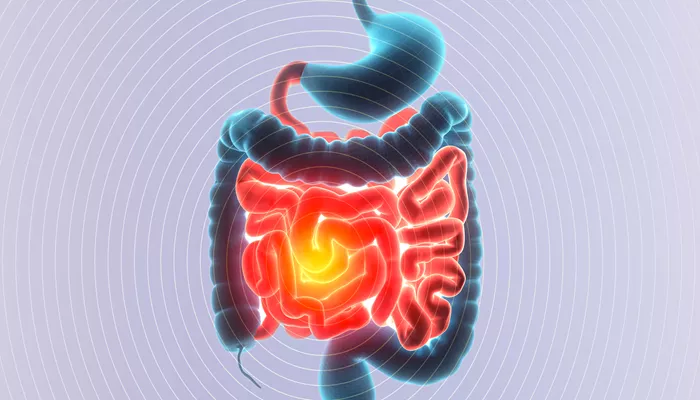A recent study has revealed that people suffering from inflammatory bowel disease (IBD) and Parkinson’s disease may share a common issue: a lack of beneficial gut bacteria. This finding raises questions about the role of gut bacteria in the development of Parkinson’s in individuals with IBD.
Both IBD and Parkinson’s disease are linked by gut inflammation, and experts have long suspected that the gut microbiome, which refers to the microorganisms in the digestive system, plays a significant role in these conditions. However, until now, little research has compared the microbiomes of people with IBD and Parkinson’s disease.
The study, conducted by scientists at the University of Florida, analyzed the gut microbiomes of individuals with both conditions. It found that people with IBD or Parkinson’s disease had a depletion of certain types of beneficial bacteria. Most notably, the bacteria that produce short-chain fatty acids (SCFAs)—which are important for immune system function—were significantly reduced.
This discovery suggests that therapies targeting the microbiome to reduce inflammation could help lower the risk of Parkinson’s disease in people with IBD.
Understanding the Connection Between IBD and Parkinson’s
Inflammatory bowel disease affects around 5 million people globally, causing a range of gastrointestinal symptoms. Parkinson’s disease, a neurodegenerative condition, has been linked to IBD in several studies. In fact, one meta-analysis found that people with IBD have a 41% higher risk of developing Parkinson’s compared to those without the condition.
Both diseases are associated with gut inflammation, and experts believe that gut dysbiosis—an imbalance in the gut microbiome—might be a key factor. A recent study compared the microbiomes of individuals with IBD and Parkinson’s disease, revealing notable similarities in bacterial depletion between the two groups.
The study, published in npj Parkinson’s Disease, examined the gut microbiomes of 54 people with Parkinson’s disease, 26 with IBD, and 16 healthy control subjects. Researchers analyzed stool samples using advanced metagenomics techniques to identify the bacteria present.
Key Findings: Depletion of SCFA-Producing Bacteria
One of the most striking findings was the depletion of bacteria that produce short-chain fatty acids, such as butyrate, a compound thought to protect against neurodegeneration. Previous research has shown that higher butyrate levels are linked to a later onset of Parkinson’s disease, suggesting that butyrate may have a protective role.
This depletion of SCFA-producing bacteria is significant because these bacteria play a role in reducing inflammation in the gut. This is particularly relevant for both IBD and Parkinson’s disease, as gut inflammation is a common feature of both conditions.
Gut Dysbiosis: Cause or Consequence?
While the study presents compelling evidence of shared microbiome features between IBD and Parkinson’s, it cannot conclusively determine whether these changes in the gut microbiome contribute to the development of these diseases or are a result of them. The researchers suggest that inflammation might cause gut dysbiosis, which in turn promotes the growth of harmful bacteria.
However, it is also possible that the pathogenic bacteria themselves are driving inflammation, creating a cycle of worsening symptoms.
Potential Treatment Options
Previous research has suggested that anti-TNF therapies, which are commonly used to treat inflammation in IBD, may also reduce the risk of Parkinson’s disease. While this study supports the idea that inflammation is a key factor, researchers caution against the widespread use of these therapies without further clinical trials.
In addition, while the benefits of pre- and probiotics are still uncertain due to individual differences in gut microbiomes, a healthy diet could potentially help. The Mediterranean diet, which is known to promote a healthy gut microbiome, has been associated with a reduced risk of Parkinson’s disease.
Conclusion
This study provides new insights into the potential connection between gut bacteria imbalances and both Parkinson’s disease and IBD. While the exact relationship remains unclear, the findings highlight the importance of gut health and its potential role in reducing the risk of neurodegenerative diseases. Further research and clinical trials will be necessary to explore potential treatments that target the microbiome for people with IBD at risk of Parkinson’s disease.
Related topics:


